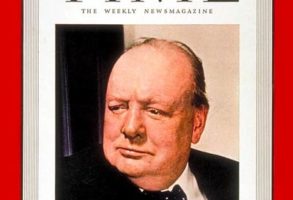
Published June 23, 2018
In 1931, the philosopher and mathematician Bertrand Russell announced his verdict: “I think the universe is all spots and jumps, without unity, without continuity, without coherence or orderliness or any of the other properties that governesses love. . . . It consists of events, short, small, and haphazard. Order, unity, and continuity are human inventions, just as truly as are catalogues and encyclopedias.”
The incoherent 21st century seems to confirm Russell’s impression. Any tendency toward order is contradicted by big-bang disruptions, anarchic social media and Donald Trump, whose life is a masterpiece of spots and jumps. Each day of his presidency seems to arrive de novo, disconnected historically from the day before. History unfolds in a circus of tweets and surprises, with Mr. Trump playing all the roles: roaring lion and trapeze artist, clown and calliope. He is only one man, of course, but for the moment Mr. Trump seems to be the representative man: the star of our incoherence.
There is a preposterous la-di-da in trying to use philosophy to make sense of Mr. Trump—even dragging in, as I intend to do, the greatest of the pre-Socratic Greeks. Mr. Trump’s enemies will, at mildest, sneer that it’s putting lipstick on a pig. But, as anchors say on CNN, take a listen.
You might start by improving on Russell. What we see before us is not spots and jumps in static designs, but rather spots and jumps constantly in motion—incoherent now, perhaps, but tending always to form themselves into new arrangements (like flocking birds or schooling fish) that will, before long, break up and become incoherent again and, after a time, form themselves into new patterns. The crucial factor is motion: the ceaseless agitation and restlessness of things. The markets behave this way, like flocking birds—coalescing, scattering, coalescing again. So does public opinion, especially in the age of Facebook and Twitter. So do refugees streaming out of the wreckage, and so do civilizations.
Two-and-a-half millennia before Russell, the Greek philosopher Heraclitus drew attention to the inherent dynamism of the universe. A philosopher of the sixth century B.C., his work has come down to us only in fragments (139 in all), quoted here and there by such later writers as Plutarch and Clement of Alexandria. His great work, “On Nature,” was lost many centuries ago. Born in Ephesus, of royal blood (he turned his birthright over to his brother), Heraclitus wrote around the same time as Confucius, Lao Tzu and the Buddha. He is best remembered as the man who said you cannot step into the same river twice.
His contemporaries found Heraclitus—a misanthropic aristocrat, an insufferable elitist by modern standards—difficult to understand: They called him “the dark” or “the obscure.” Yet today his thought has a radiant clarity. He anticipated Einstein’s theory that energy is the essence of matter: Heraclitean fire suggests an absolutely unstable world, in constant flux, consuming and creating, life passing into death and death into life, day ousting night and night, day; and good, evil and evil, good. “The earth is melted into the sea by that same reckoning whereby the sea sinks into the earth.” Or: “As all things change to fire, and fire exhausted falls back into things, the crops are sold for money spent on food.” All contradictions are reconciled in the two-stroke dynamics of the world. Everything has a twin. Heraclitus planted the seed that grew into Hegel’s dialectic—thesis, antithesis, synthesis.
In Heraclitus’ doctrine of perpetual flux, each moment (as in his famous river) is unique and irrecoverable. That is especially true in an epoch, like this one, of momentous choice and change. What is true at one moment may become untrue, or at least irrelevant, in the next.
In such an age, Mr. Trump—one of history’s plungers—shoots the rapids. If he is inclined to make up facts, it is because, in his mind, the new facts (or new falsehoods—who cares?) are indispensable to what he considers his real work, which is the creation of new realities: the deal and its fruition. Lies become facts when they come in handy. The secret of good lying, and effective negotiations, is to believe your own lie at the time you tell it.
Forget about Mr. Trump’s bad manners and vulgarian style. His idea of truth or falsehood is utilitarian: Absolutely everything that he does or thinks is a negotiation with the possibilities as he sees them at a given moment; the implication of amorality is implicit. Mr. Trump’s way may be called either leadership or Caesarism, depending on your point of view. The river that he swims is often the Rubicon.
The American theologian and poet of the idea underlying Mr. Trump’s rise is Ralph Waldo Emerson, who believed in the rising every day of a new sun—an essentially American sun. There is some dissonance in the notion of Emerson, the wonder-rabbi of Concord, as spiritual sponsor of the sleepless tweeter, the man on the “Access Hollywood” tape. But Emerson himself wrote that most men, most of the time, are dogs. Now and then, he said, they may—unexpectedly and unaccountably—sing like angels, uttering “the words they have heard in heaven.” After they are done singing, “the mad fit returns,” and they “wallow like dogs” once again. Mr. Trump’s history as a dog is well known.
The dog and the angel are twins of human nature—another pair of Heraclitean opposites. Mr. Trump is a charlatan and a grifter, or at best a sketchy Prospero. His enemies, in the millions, have him down as a monster. Or perhaps—despite all—he is a leader of consequence and maybe (who knows?) a genius of history. Maybe he is all of those things, acting in tumultuous concert. We do not yet know the outcome.
Remember what Solon told Croesus, a Trump-like figure who was king of Lydia just before Heraclitus’ time: Best not to render ultimate judgment on a man’s story until you have seen the end of it. In the 21st century, life is a lot stranger than it used to be.
Mr. Morrow, a senior fellow at the Ethics and Public Policy Center, is a former essayist for Time.




